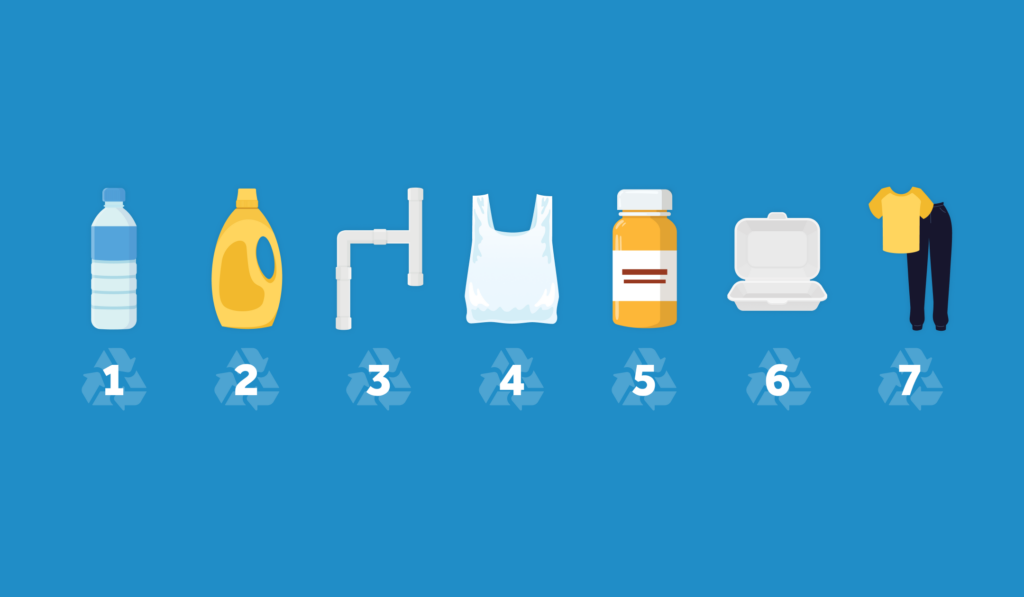Recycling plays a crucial role in reducing plastic waste and conserving resources. However, understanding the proper way to recycle different types of plastics can take time and effort. In this article, we will demystify the recycling process for plastic types 1-7, providing valuable insights and practical actions individuals can take to reduce plastic waste significantly.
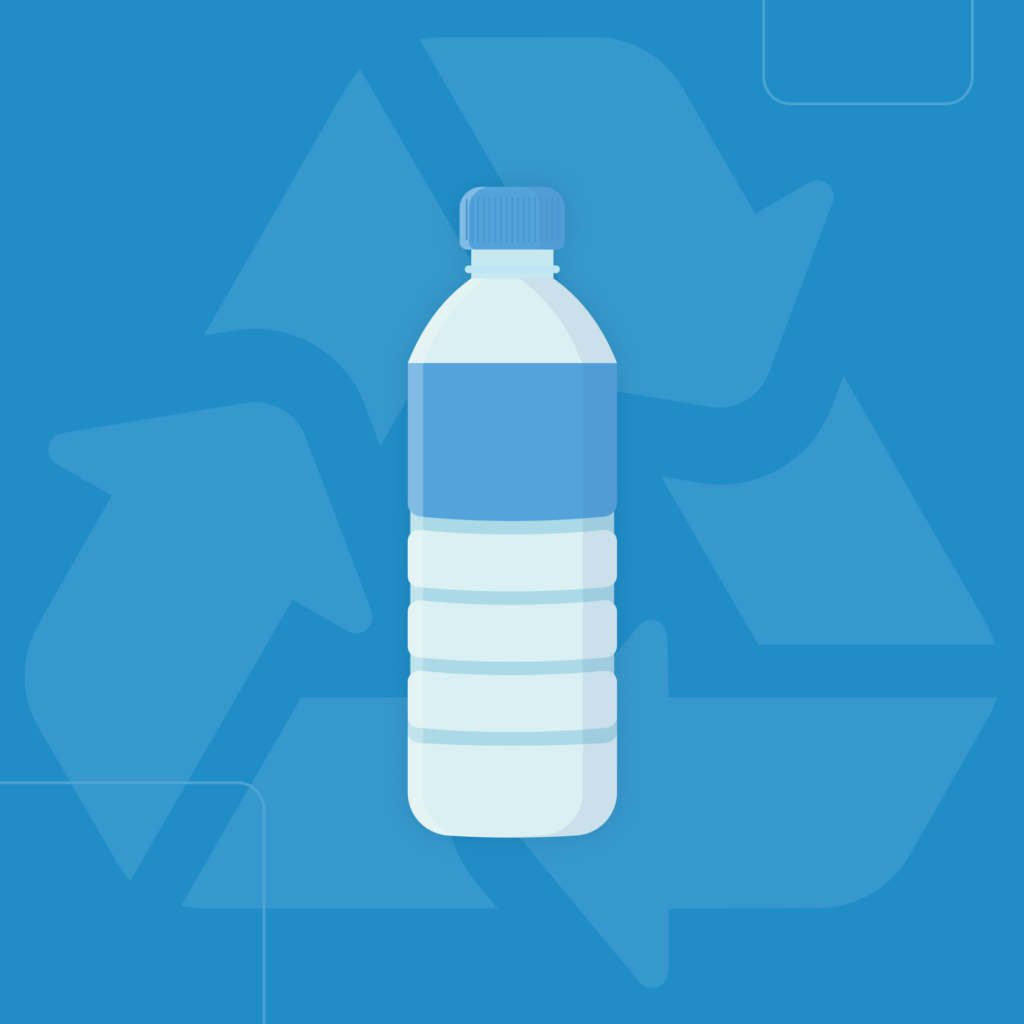
Plastic Type 1: PET (Polyethylene Terephthalate): Plastic type 1 is commonly used in beverage bottles, food containers, and polyester textiles. To recycle PET plastics effectively, empty and rinse containers, removing any caps or lids. Flatten bottles to save space. Look for recycling symbols with the number 1 inside or on the bottom, indicating PET plastic. Place these items in your curbside recycling bin or take them to local recycling centers. By recycling PET, you contribute to creating new bottles, textiles, and other useful products.
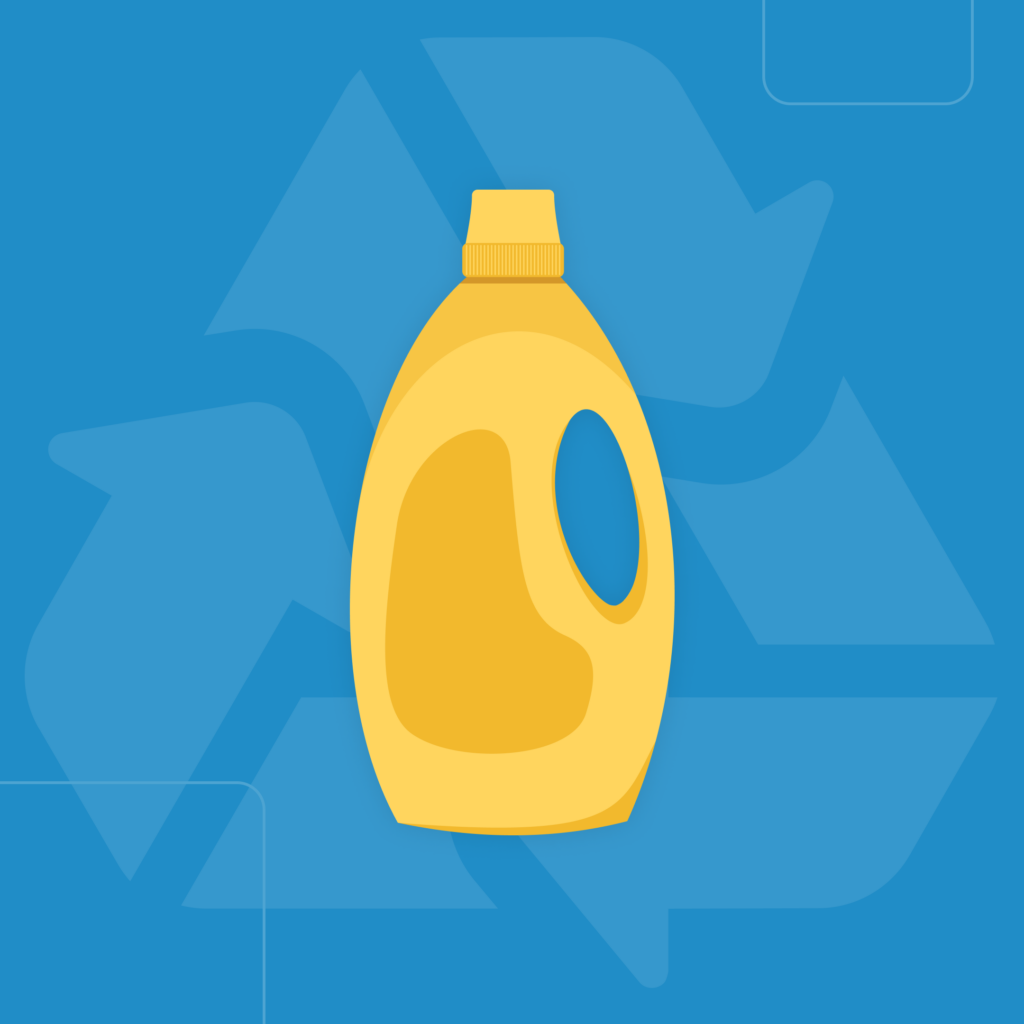
Plastic Type 2: HDPE (High-Density Polyethylene): HDPE plastics are commonly found in milk jugs, detergent bottles, and plastic bags. Properly recycle HDPE by emptying and rinsing containers and removing any caps or pumps. Check for the recycling symbol with the number 2 inside or the bottom, indicating HDPE plastic. Place these items in your curbside recycling bin or take them to designated drop-off locations. Recycled HDPE is used to produce new containers, pipes, and even outdoor furniture.
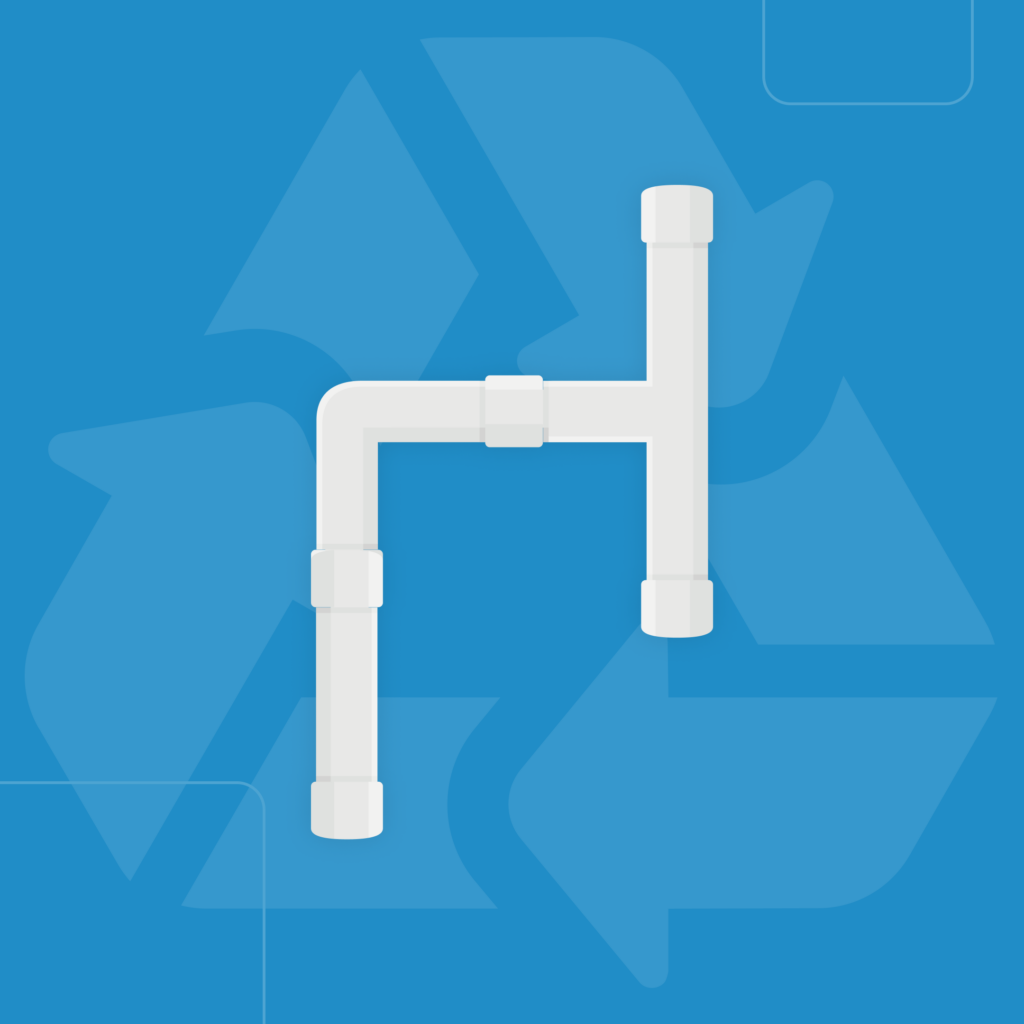
Plastic Type 3: PVC (Polyvinyl Chloride): PVC plastics are often found in pipes, vinyl siding, and blister packaging. Recycling PVC can be challenging due to its chemical composition. It is best to avoid PVC when possible. However, if you come across PVC items that require disposal, check with local recycling facilities if they accept PVC or provide specialized recycling programs. Safely disposing of PVC prevents it from contaminating other recyclable materials.
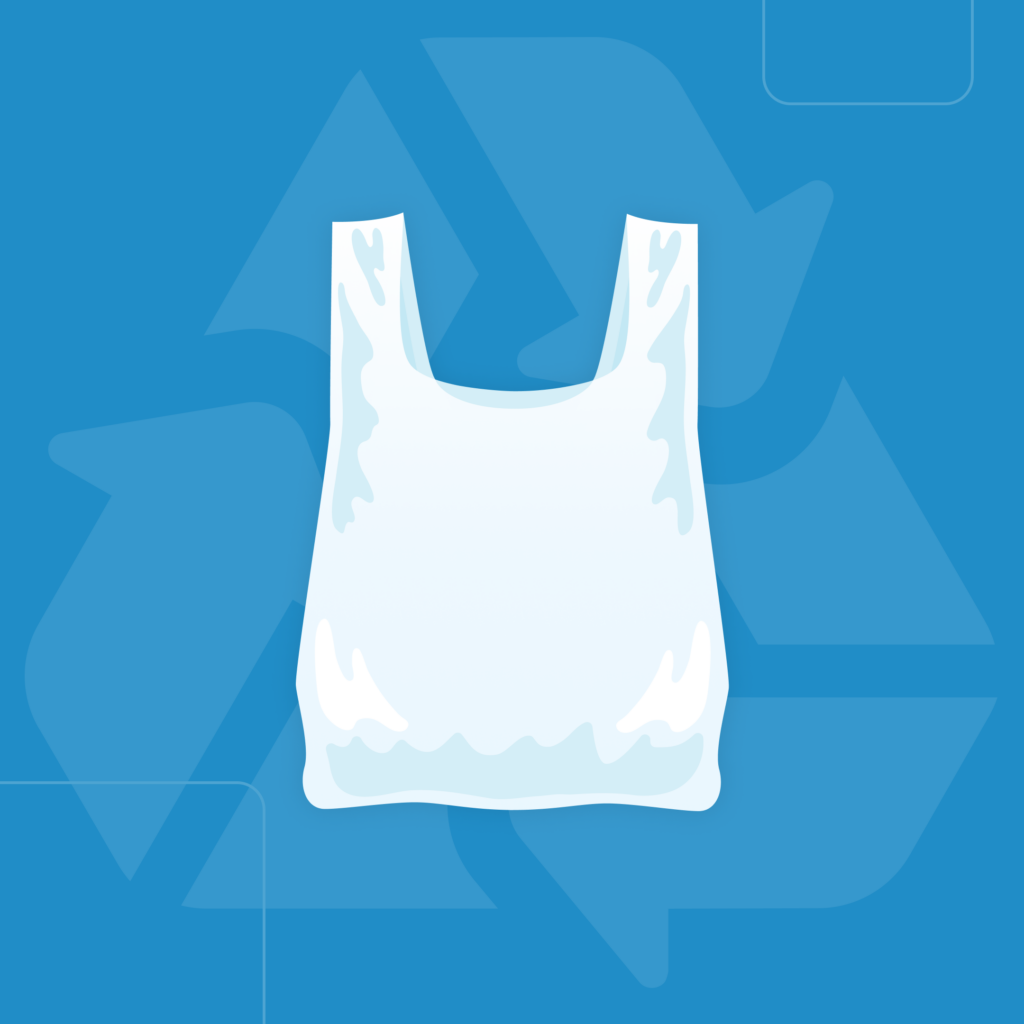
Plastic Type 4: LDPE (Low-Density Polyethylene): LDPE plastics include items like grocery bags, shrink wrap, and flexible packaging. While recycling options for LDPE may vary depending on your location, some grocery stores accept plastic bags for recycling. Reusing LDPE bags is an even better option. Bring your reusable bags when shopping to reduce the need for single-use plastics. Additionally, consider repurposing LDPE bags for storage or donate them to local organizations that can reuse them.
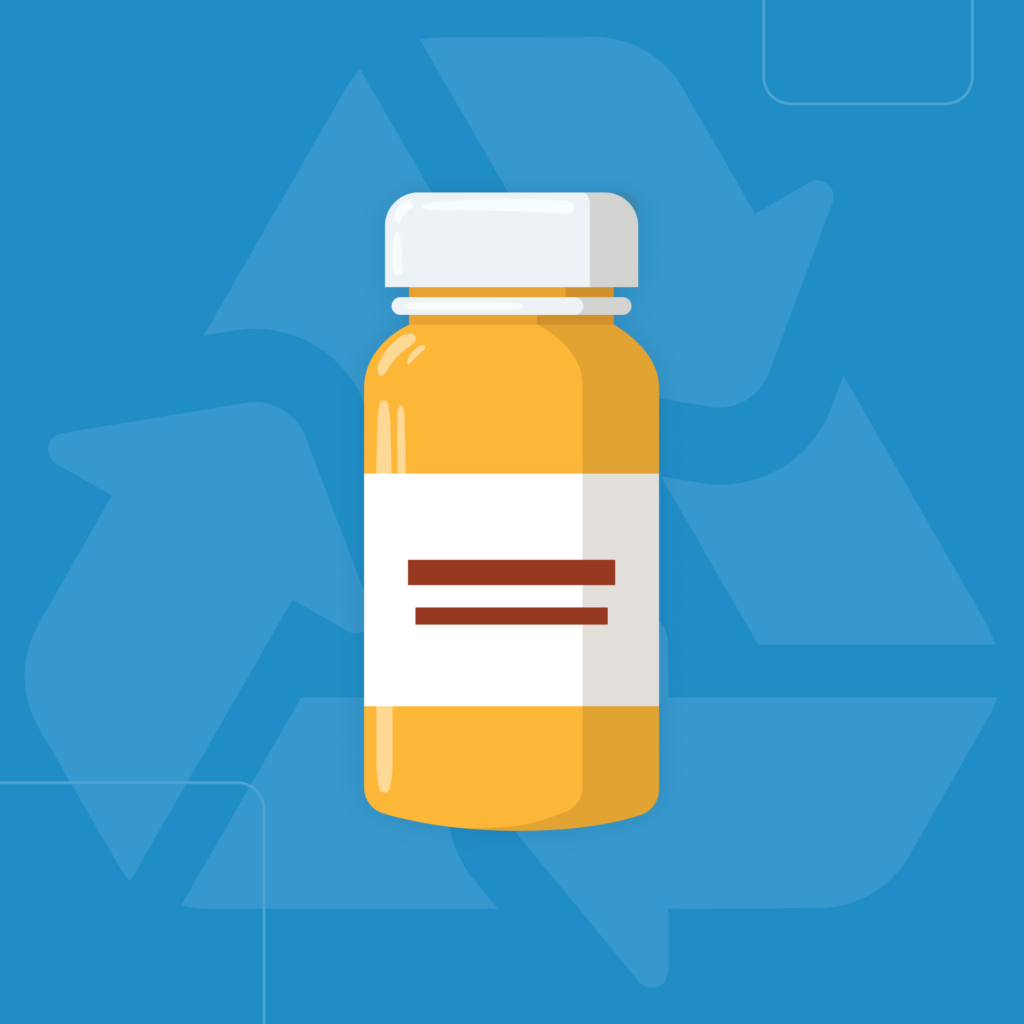
Plastic Type 5: PP (Polypropylene): PP plastics are commonly used in food containers, bottle caps, and some automotive parts. To recycle PP plastics effectively, ensure they are empty and rinse them thoroughly. Check for the recycling symbol with the number 5 inside or the bottom, indicating PP plastic. Place these items in your curbside recycling bin or take them to designated drop-off locations. Recycled PP is transformed into new containers, automotive parts, and various household products.

Plastic Type 6: PS (Polystyrene): Polystyrene is found in foam packaging, disposable cups, and plastic utensils. Proper recycling options for PS can be limited, as it is not widely accepted in curbside recycling programs. However, some specialized recycling facilities may accept expanded polystyrene foam. You can also use the TerraCycle Styrofoam - Zero Waste Box™, which ships directly to your house. Wherever possible, choose alternatives to polystyrene, such as reusable or biodegradable materials, to minimize its environmental impact.
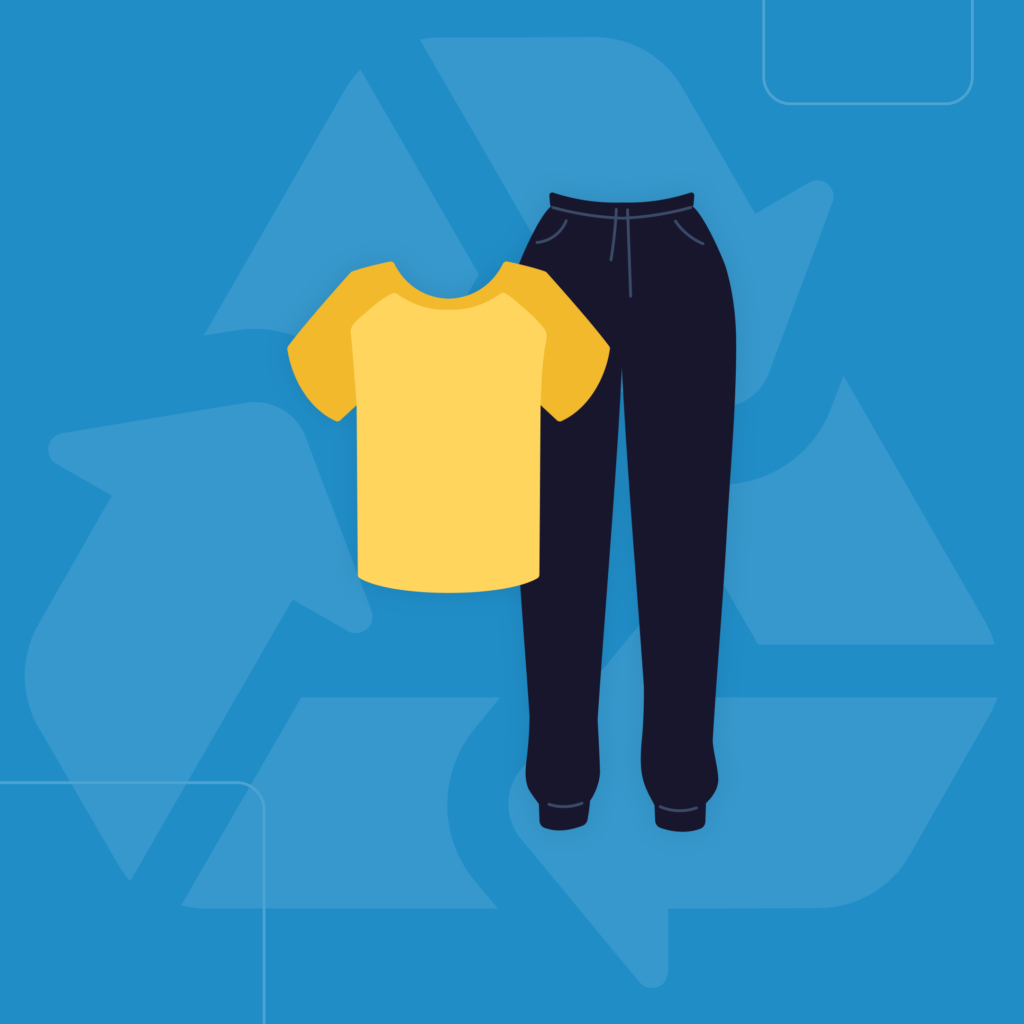
Plastic Type 7: Other Plastics: Plastic type 7 encompasses various plastic resins that do not fall under the other categories. It includes polycarbonate (PC) and bioplastics. These are often found in clothes and home textiles as well. Recycling options for plastic type 7 can be limited and vary depending on the specific resin. It is recommended to check with local recycling centers or specialized programs to determine if they accept type 7 plastics. If you don’t have textile recycling in your community, check out For Days Take Back Bag program, which will recycle your items into insulation, rugs and cleaning materials.
Properly recycling different types of plastics is a crucial step toward reducing plastic waste. By familiarizing ourselves with the recycling requirements for each plastic type, we can make informed choices and contribute to a more sustainable future. Remember, recycling is just one piece of the puzzle. Reducing plastic consumption and opting for reusable alternatives are equally important in our collective efforts to combat plastic waste.
JouleBug is here to help you start with our curated Recycling theme and challenge, which features simple actions that interactively educate people on reducing and eliminating waste.
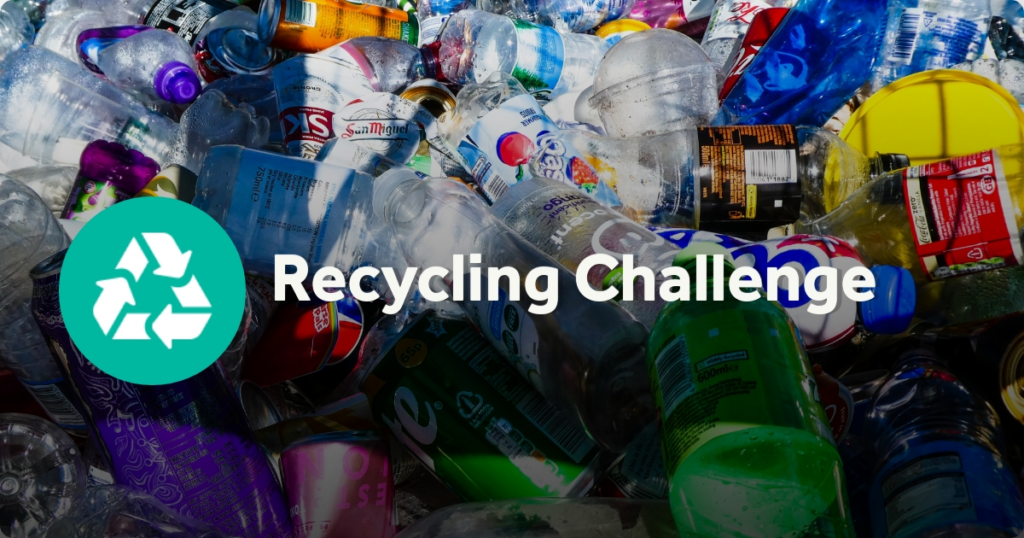
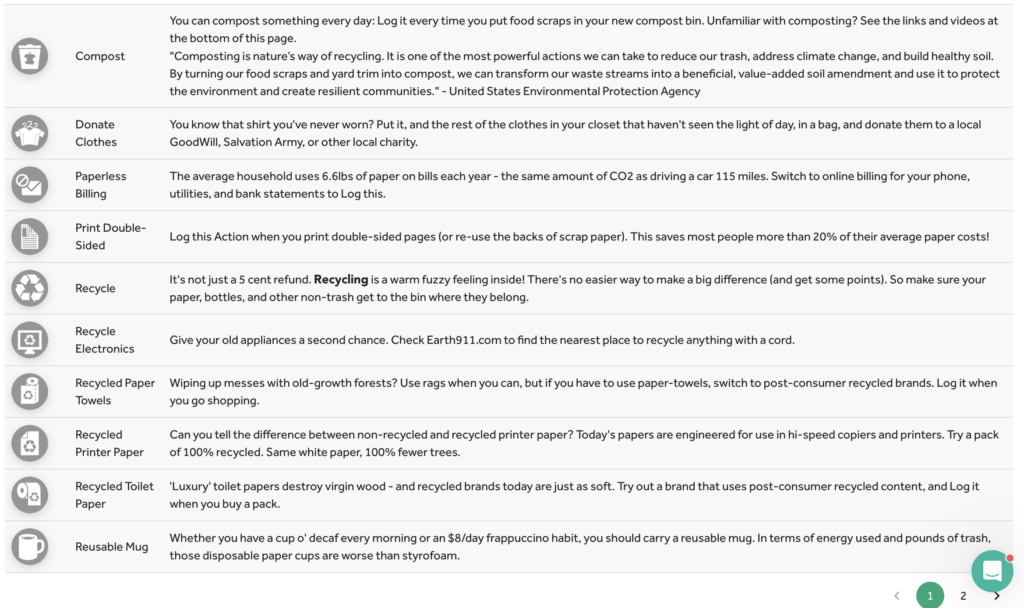
Got more questions for our team? Contact our sales team to book a demo and learn more about employee engagement for sustainability with JouleBug.

